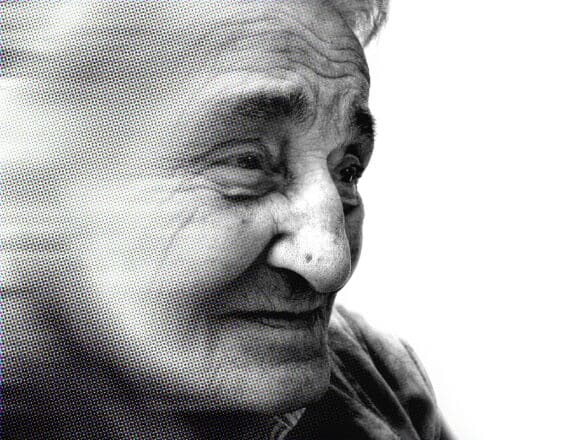“Coping with Resistance: Seeking Professional Help for Elderly Parent Care” guides you in navigating the delicate process of offering assistance to elderly parents who may be resistant to help or advice. As you tread this emotional path, the key lies in practicing unwavering patience and tenacious persistence. Careful choice of battles avoids power struggles and unnecessary strain on the relationship. Sensitive communication using “I” statements while sidestepping criticism or judgment can create open channels for conversation. It is essential to find the right moment for challenging discussions, ensuring everyone involved is at ease. This piece also discusses the importance of involving them in the decision-making process, understanding the underlying motivations behind their behavior, and seeking professional assistance when necessary. It emphasizes respect and love, prioritizing the parent-child relationship, and above all, understanding that you cannot control every outcome. It is a comprehensive guide to help you meet the challenges of elder parent care with wisdom and compassion.
Understanding the Resistance
The process of caring for elderly parents can have its challenges. One common hurdle is that they may resist help, advice, or changes in their routines. Understanding the resistance helps to navigate these situations effectively.
Identifying the Motivations Behind the Resistance
Often, the resistance could be fueled by fear, anxiety, or simply their need for independence. Being patient can help you discern what might be driving the resistance. By taking a patient approach, you give them the opportunity to express their feelings openly. Remember, their resistance might be a coping mechanism for the changes they’re experiencing.
Dealing with Anger, Hostility or Refusal to Bathe
Sometimes, resistance might also manifest through anger or hostility, or refusal to perform personal hygiene tasks like bathing. In such situations, it’s essential to try and remain calm. Reacting in a similar manner only escalates the problem. Instead, try to explore alternatives or compromise to make the situation less stressful for both parties.
Recognizing Symptoms of Underlying Mental Health Issues or Cognitive Decline
In other instances, persistent resistance might signal an underlying health issue. Watch out for significant changes in behavior or reactions as they may hint to mental health issues or cognitive decline. In such cases, seeking professional medical advice becomes critical.
Communicating with Elderly Parents
Effective communication is the cornerstone of resolving any resistance. How, when, and where you communicate your concerns and suggestions matter significantly.
Choosing the Right Timing for Difficult Conversations
The timing of your conversation affects its outcome. Choose a time when you are all relaxed and free from other pressures. Such a setting fosters better receptiveness towards each other’s viewpoint.
Communicating with Sensitivity and Respect
How you communicate your suggestions and concerns is just as important as the message itself. The golden rule is to always handle these conversations with sensitivity and respect. Using a warm tone and simple language can help convey your message without making them feel judged or misunderstood.
Avoiding Criticism or Judgment
Remember, criticism or judgment will only create a barrier between you and your parent. Instead, voice your concerns in a way that shows your genuine care and worry for their well-being. Avoid making finger-pointing statements and instead, use positive language.
Using ‘I’ Statements in Conversations
Another technique to use is ‘I’ statements. This allows you to frame your concerns from a personal perspective, reducing the likelihood of causing defensiveness. For example, instead of saying “You don’t take your medications on time”, consider saying “I worry when you don’t take medications on time”.

Implementing Effective Decision-Making Strategies
A common mistake while caring for elderly parents is to dismiss their ability to make decisions. Involve them in the decision-making process as this can greatly reduce resistance.
Involving Parents in Decision-Making Process
Involving elderly parents in all decision-making processes concerning them fosters independence. You could discuss your concerns, lay out solutions, and let them choose the best option. This approach not only reduces resistance but also enhances their dignity.
Asking Open-Ended Questions to Foster Discussions
To foster rich discussions, consider asking open-ended questions. This promotes comprehensive answers and encourages further discussions, bringing you closer to the best solution.
Focusing on the Benefits of the Perspective Changes
When suggesting changes, focus on pointing out the benefits rather than instructing them on what to do. Explain that any suggested changes aim at promoting their health and overall well-being.
Dealing with Power Struggles
Power struggles are not uncommon when caring for elderly parents. Dealing with them effectively prevents unnecessary strain to your relationship.
Avoiding Power Struggles within Relationships
Avoid power struggles by promoting a calm and respectful environment. Make your suggestions without sounding as though you know more or demanding compliance.
Picking Battles Carefully to Reduce Stress
It is important to pick your battles wisely. Minor issues that cause friction can be overlooked for the sake of maintaining harmony and reducing stress.
Reminding Parents of Their Choices and Autonomy
Through each interaction, remind your parents that they still have their choices and autonomy. Let them make as many decisions as they can, giving them a sense of control.

Respecting Their Choices
While it is compassionate to look out for their best interests, elderly parents have the right to make their own choices.
Understanding and Acceptance of their Decisions
To navigate such delicate situations, it’s vital to understand and respect their autonomy. They may not change their minds but respecting their choices is critical.
Outlining the Consequences of Their Actions Respectfully
While you may not agree with all their decisions, you can always outline the risks involved in the most respectful and understanding way possible. Making them aware of potential consequences allows them to reassess their choices.
Treat Your Parents as Adults and Empowering their Decision Making
Despite their age, remember to treat your parents as adults. Empowering their decision-making restores their sense of personhood and reduces resistance to care.
Building Bonds and Expressing Love
Amidst all the responsibilities and challenges, don’t forget the essence of your relationship – the love between a parent and child.
Increasing the Quality Time with Parents
Spend quality time with your parents beyond caregiving responsibilities. This fosters a stronger bond and lets them understand you’re prioritizing your relationship.
Expressing Love and Concerns Tenderly
Express your love tenderly and let them know how much they mean to you. Emphasize that your concerns come from a place of love.
Prioritizing the Parent-Child Relationship
Prioritize your parent-child relationship. Knowing you are there for them strengthens their sense of security.

Seeking Aid from Other Family Members and Friends
Sometimes, bringing in other family members or close friends to the discourse can help.
Attracting Support from Other Family Members or Friends
Your parents might be more receptive to advice from someone outside this immediate scenario. Relatives or friends voicing similar sentiments might influence positive change.
Leveraging Other Relationships for Better Receptiveness
Sometimes, the outside perspective of family or friends might be more effective for your parents. They might receive their take on things with less resistance.
Consulting with Your Parents’ Doctors
Involve your parents’ doctors in your caregiving journey. Their guidance can be particularly useful in navigating resistance and determining the way forward.
Discussing Your Concerns with Their Healthcare Specialists
Share your concerns with your parents’ doctors. They can provide strategies and treatment plans to improve your parents’ well-being.
Obtaining Professional Medical Advice
By discussing your concerns with a medical professional, you can acquire a better understanding of your parents’ health situation and potentially identify and address any underlying medical issues.
Self-Care during Elderly Parent Care
While looking after your parents’ needs, don’t forget to take care of yourself too.
Dealing with Feelings of Overwhelm and Frustration
Caring for elderly parents can lead to feelings of overwhelm and frustration. Dealing with these feelings is crucial for your well-being. Seek support if necessary.
Engaging with Counseling or Support Groups
Engage in counseling sessions or join a support group. These can provide a platform for you to express your feelings and get supportive advice.
Accepting the Situation and Avoiding Self-Blame
Remember that it’s okay to feel overwhelmed. Accept the situation, ensure you’re not blaming yourself, and use your experience to grow.
When to Seek Professional Help
Sometimes, it might be necessary to get professional help.
Recognizing Signs of Serious Issues like Abusive Behavior or Severe Resistance
If you notice signs of abusive behavior, aggressive hostility, or severe resistance, it might be time to bring in professional help. Such behaviors may signal deeper issues that need specialized intervention.
Getting Professional Guidance for Parent Care
Caring for elderly parents can be overwhelming. Professional guidance can provide you with tailored strategies to cater to your parents’ needs, enhancing their quality of life.
Understanding the Benefits of Professional Elderly Care
Professional elderly care can offer a much-needed respite from caregiving responsibilities while ensuring your parents’ needs are catered for. Professional carers bring skills and experience to manage different situations effectively.
In conclusion, taking care of an elderly parent requires patience, understanding, and effective communication strategies. It’s always important to respect their choices while still helping them make informed decisions. Seek help if necessary, but never forget to express love and build bonds in this journey.
